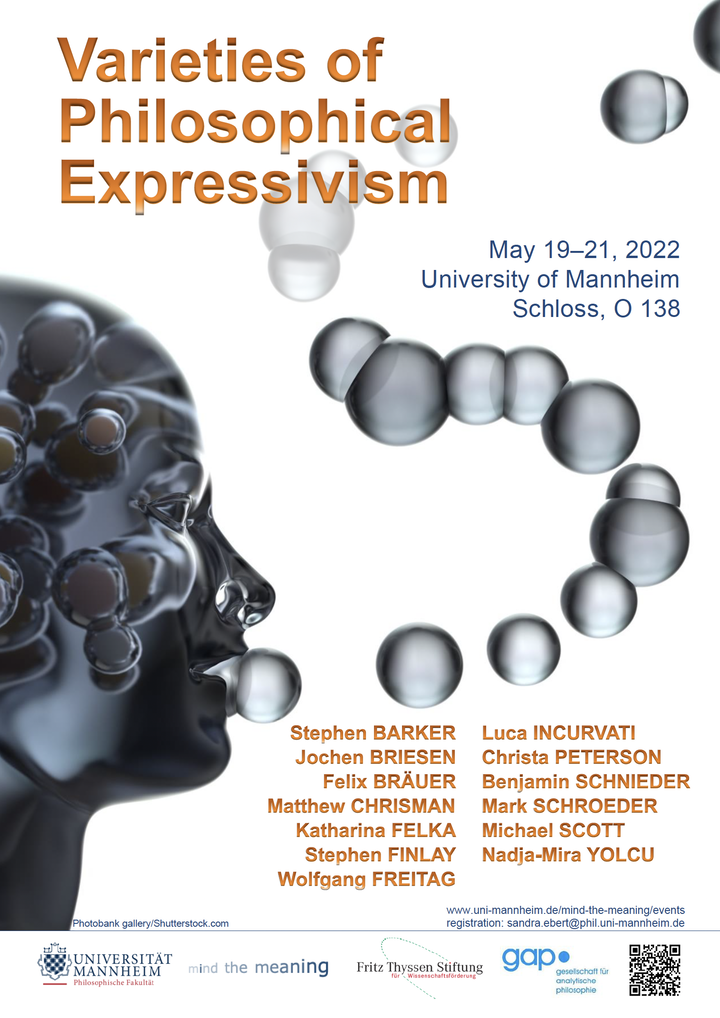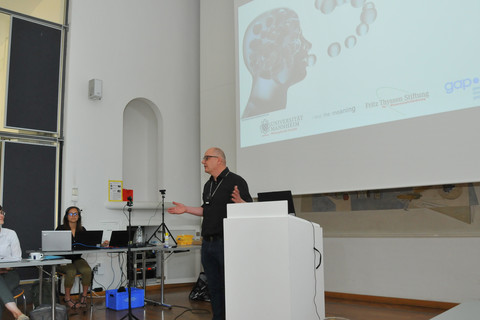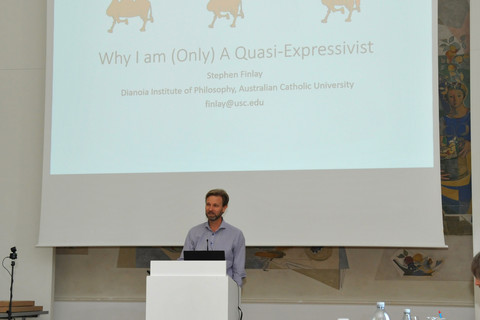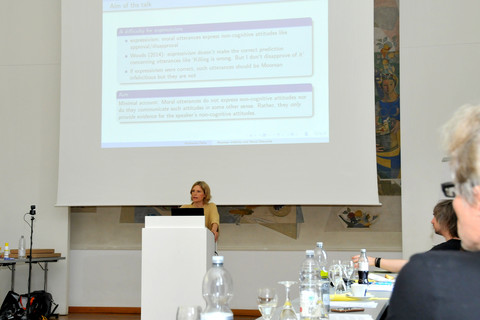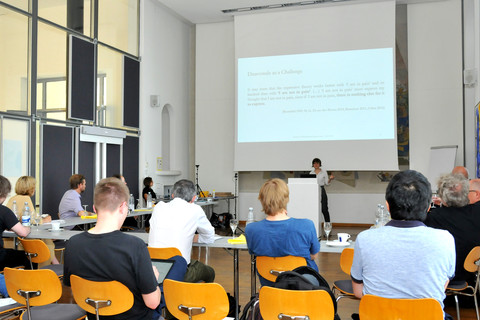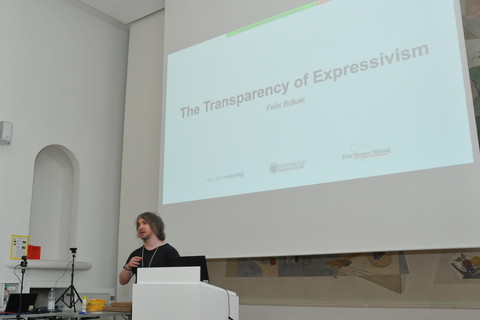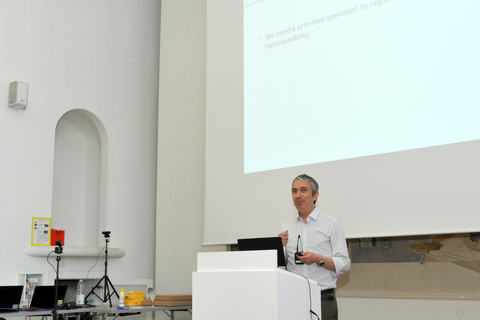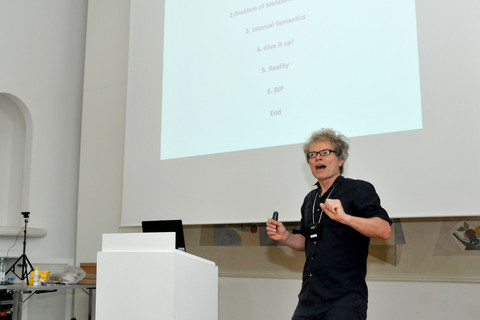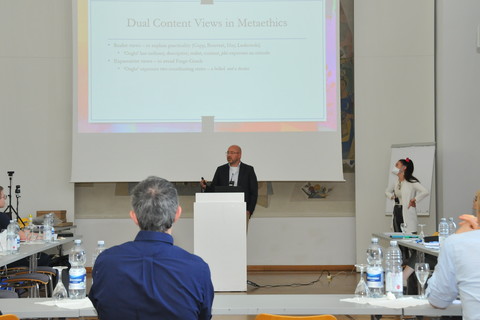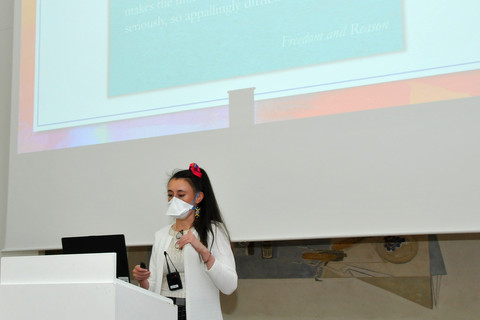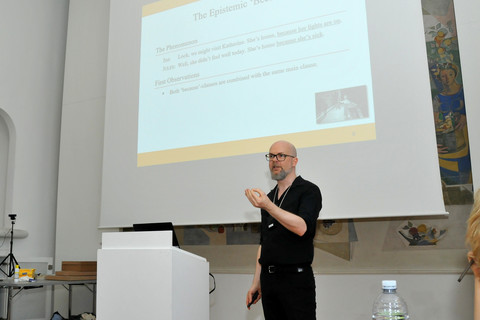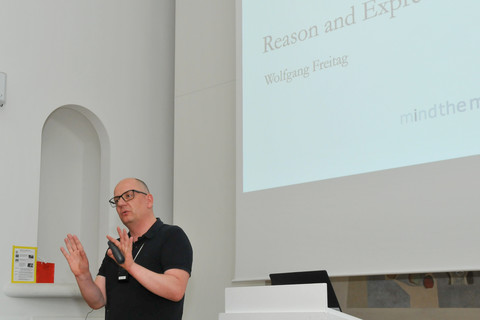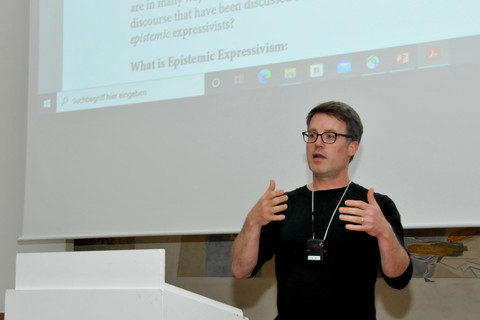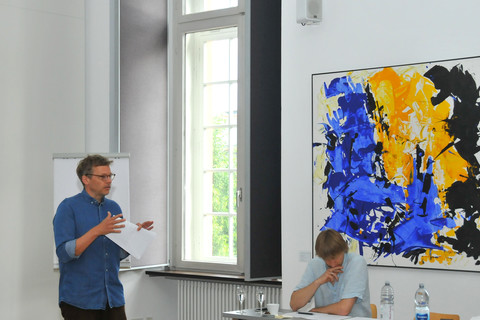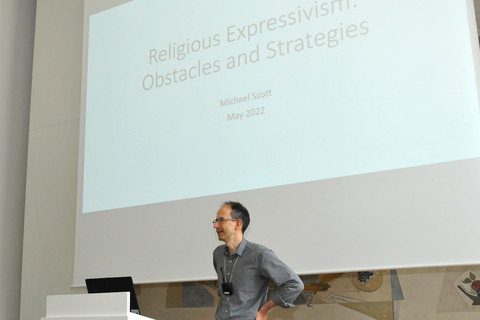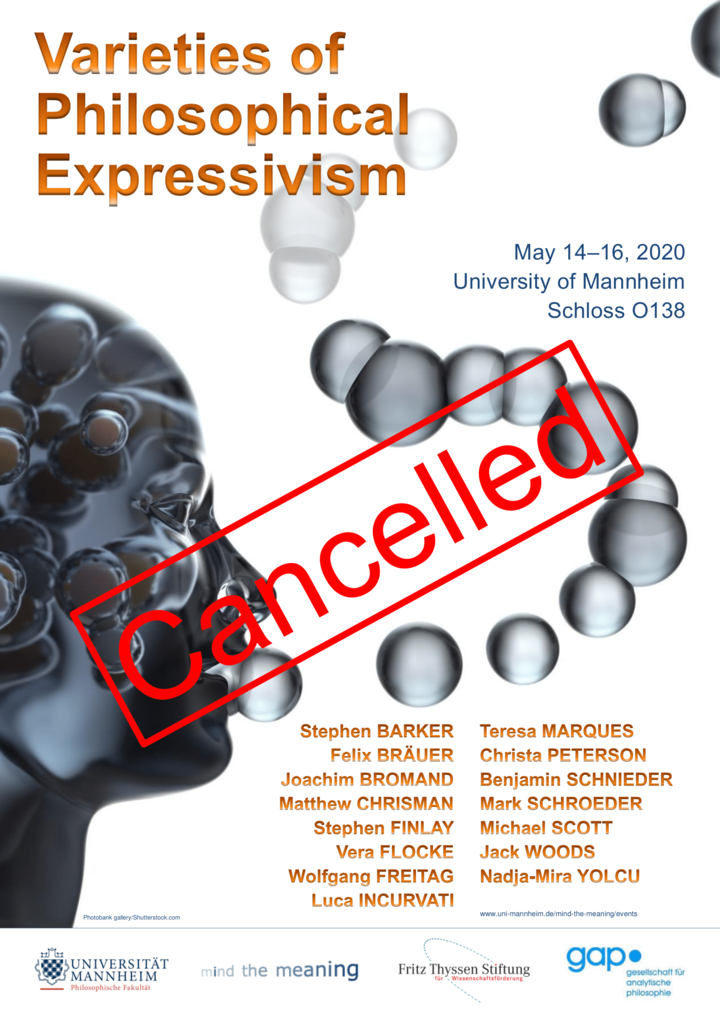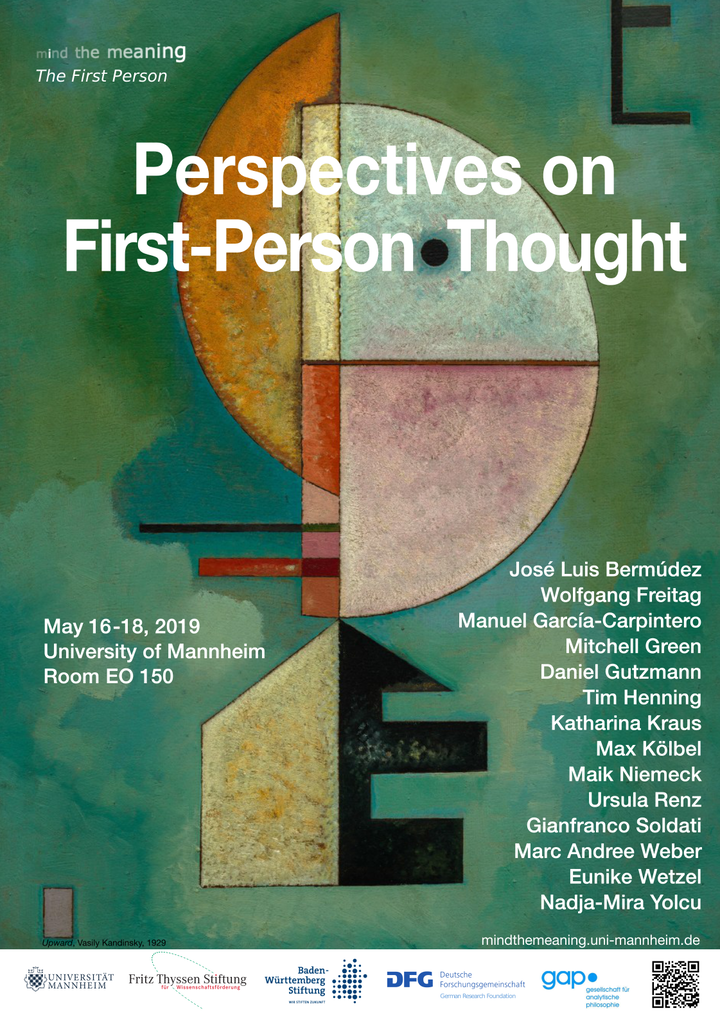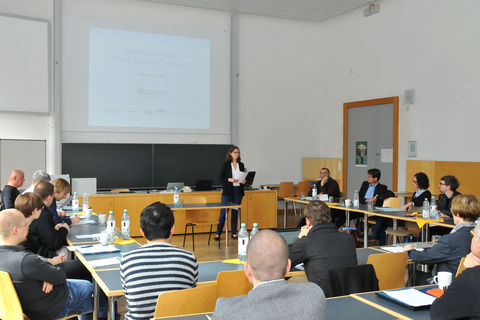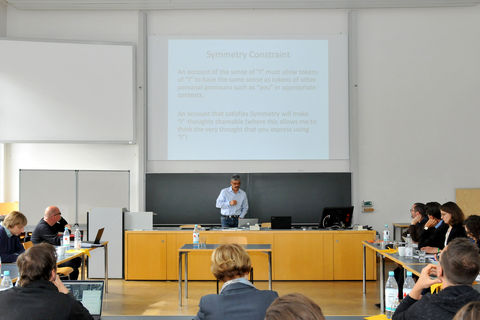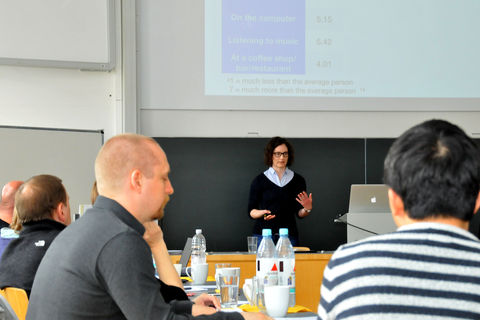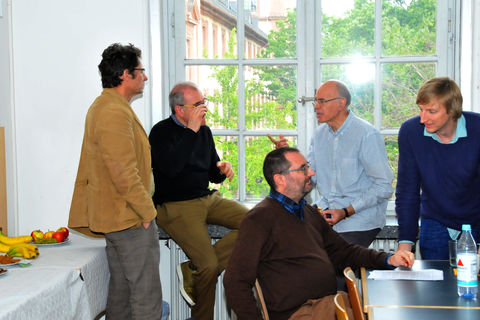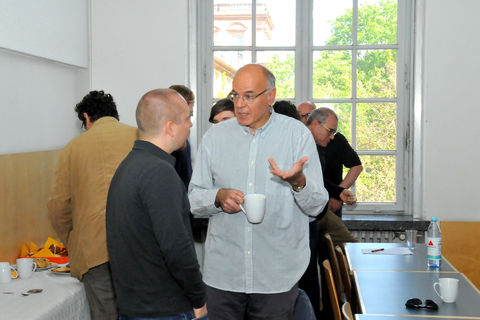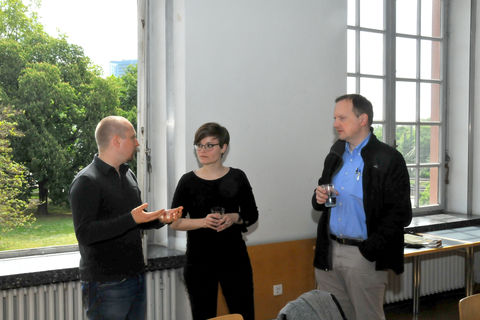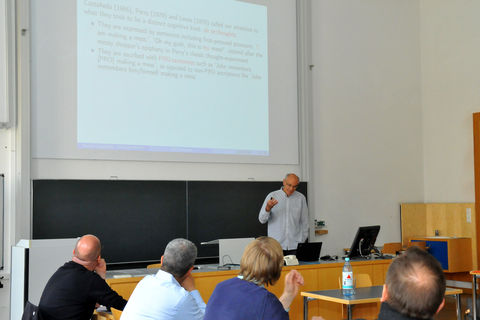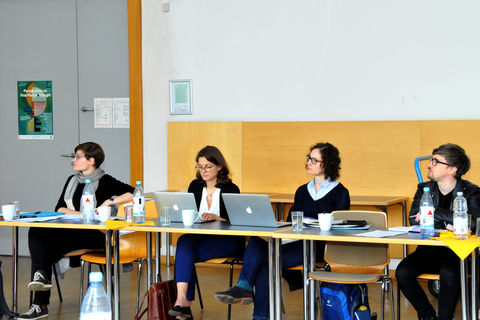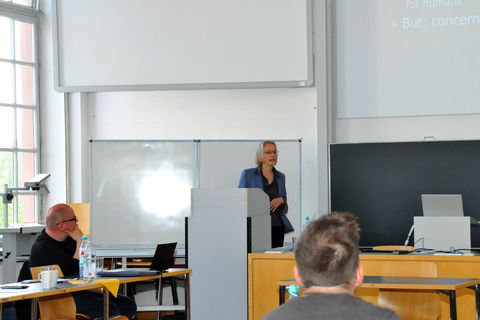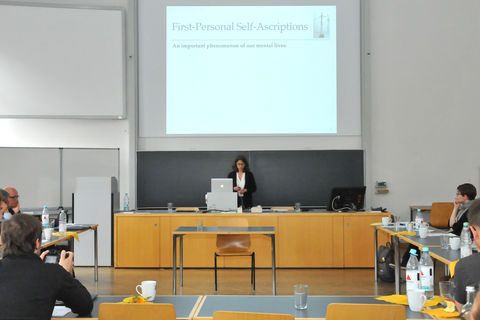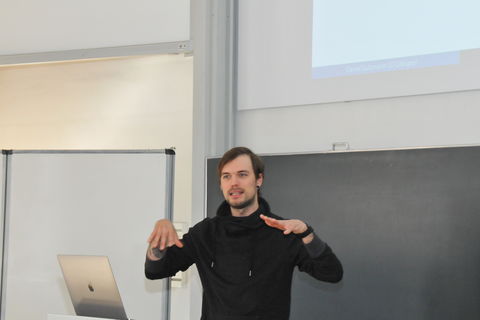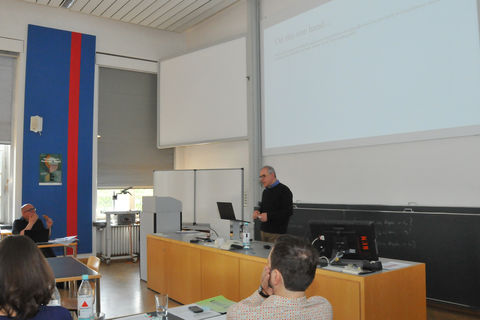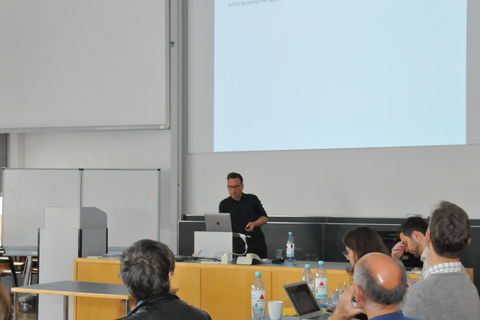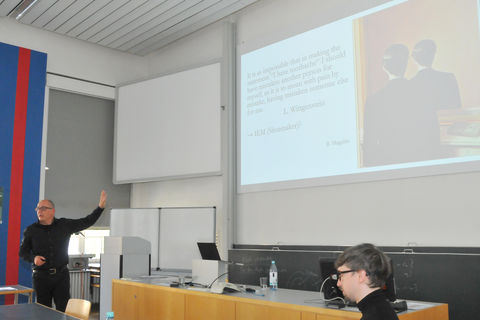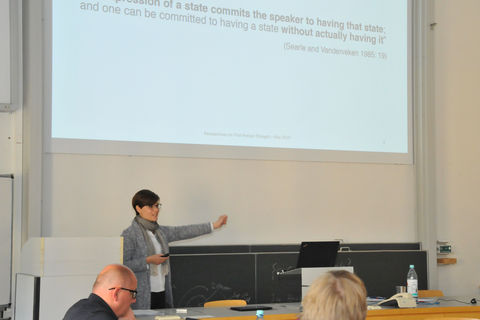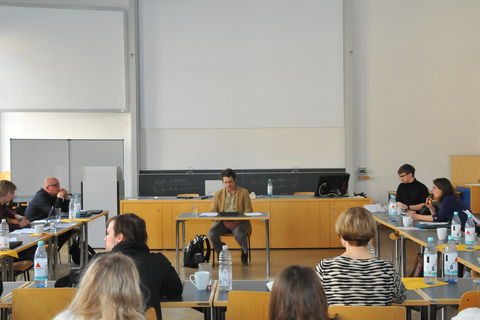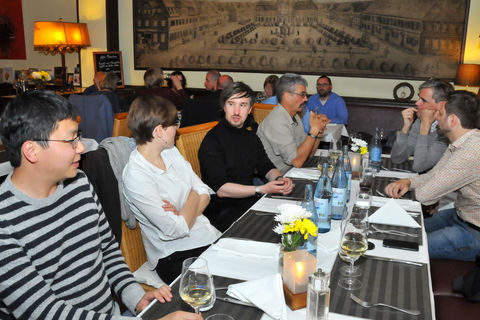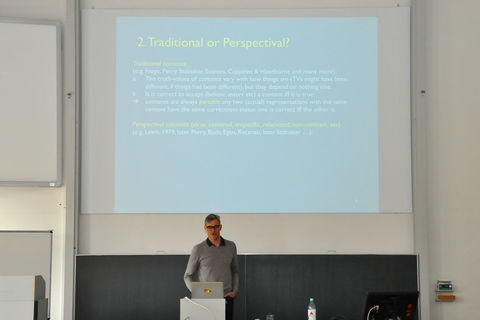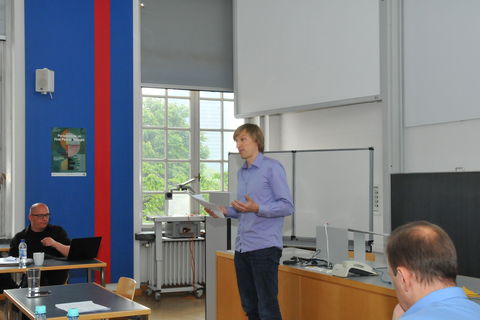Events
Past Events
Varieties of Philosophical Expressivism
International Conference
19–21 May 2022
University of Mannheim
Schloss, Room O 138 | ZOOM
The conference was originally scheduled for May 2020 but was postponed due to the Covid-19 pandemic.
Philosophers have become increasingly interested in expressivist views within various subfields such as ethics, aesthetics, epistemology, the philosophy of language and logic, and the philosophy of mind. What unites these views is the idea that affirmations about a certain subject matter are not, or not primarily, descriptions of a mind-independent reality, but serve to express the speakers’ mental states. It is, however, a controversial matter what this means exactly and what it implies. What are the formal, what are the logical properties of the notion of expression? Can one express a mental state one does not possess? And what, if any, are the semantic or pragmatic consequences of adopting an expressivist position? For example, are there any genuinely expressivist views that can plausibly be combined with classical truth-value semantics, and if so, are they restricted to specific classes of claims?
In the conference, we aim at identifying structural similarities (as well as differences) between the distinct strands of expressivism in order to shed light on, among other things, the notion of expression, the conceptual and semantic challenges that expressivists face, and the merits and drawbacks of expressivist theories in general.
Attendance is free, please register: sandra.ebertuni-mannheim.de
Mind the Meaning: The Philosophy of Psychological Expressivism
External Workshop at the Tsinghua University of Beijing
*CANCELLED DUE TO THE COVID-19 PANDEMIC.*
25 September 2020 Tsinghua University of Beijing
Speakers: Prof Dr Wolfgang Freitag, PD Dr Joachim Bromand and Nadja-Mira Yolcu (PhD student)
Varieties of Philosophical Expressivism
International Conference
*CANCELLED DUE TO THE COVID-19 PANDEMIC. RESCHEDULED FOR MAY 2022, SEE ABOVE.*
14–16 May 2020
University of Mannheim
O 138 Fuchs-Petrolub-Festsaal
Schloss Eastwing, 1st floor
In the last decades, philosophers have become increasingly interested in expressivist views within various subfields such as ethics, aesthetics, epistemology, the philosophy of language, the philosophy of mind, and the philosophy of law. What unites these views is the idea that affirmations about a certain subject matter are not, or not primarily, descriptions of an underlying reality, but serve to express the speakers’ mental states. It is, however, a controversial matter what this means exactly and what it implies. What are the formal, what are the logical properties of the notion of expression? Can one express a mental state one does not possess? And what, if any, are the semantic, what are the pragmatic consequences of adopting an expressivist position? For example, are there any genuinely expressivist views that can plausibly be combined with classical truth-value semantics, and if so, are they restricted to specific classes of claims?
In the conference, we aim at identifying structural similarities (as well as differences) between the distinct strands of expressivism in order to shed light on, among other things, the notion of expression, the conceptual and semantic challenges that expressivists face, and the merits and drawbacks of expressivist theories in general.
Confirmed Speakers:
Stephen Barker
Felix Bräuer
Joachim Bromand
Matthew Chrisman
Stephen Finlay
Vera Flocke
Wolfgang Freitag
Luca Incurvati
Teresa Marques
Christa Peterson
Benjamin Schnieder
Mark Schroeder
Michael Scott
Jack Woods
Nadja-Mira Yolcu
Mini workshop with Dorit Bar-On
30 September – 01 October 2019
University of Mannheim
On 01 October Dorit Bar-On will also give a public talk entitled “Expression, Communication, and Origins of Meaning: A Philosophical Perspective”.
Perspectives on First-Person Thought
International Conference
16–18 May 2019
University of Mannheim
Schloss, Room EO 150
Is there anything special about the way we think and talk about ourselves, and in particular about our own inner world? It is sometimes said that thoughts about our own conscious states involve a kind of awareness that is fundamentally different from the one that comes with other thoughts. It is also often held that we cannot misrepresent the subject of our current experiences, and that this phenomenon must be explained by an adequate theory of first-person thought. Yet it is difficult to discern what exactly these claims entail. Moreover, there is no uncontroversial way to relate phenomena of first-person thought to phenomena of first-person speech. When we utter self-ascriptions of mental states, do we thereby simply report in which state we are, or do we rather directly express the respective state?
Our aim in this conference is to bring together researchers – including philosophers, linguists, and psychologists – who will address and discuss these and other questions relating to first-person thought and the way it is articulated in speech.
The conference will be the concluding event of the project The First Person and the inaugural conference of the project Mind the Meaning.
Attendance is free, please register: sandra.ebertuni-mannheim.de
A Campus Map can be found here.
Suspension of Belief
International Conference
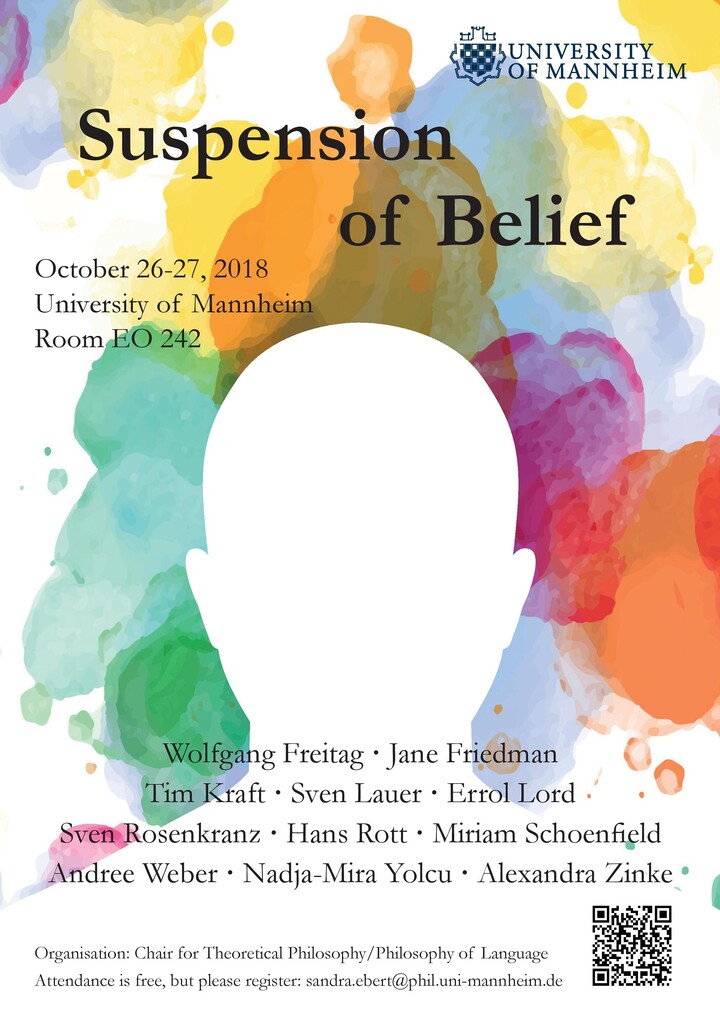
26–27 October 2018
University of Mannheim
Schloss, Room EO 242
We often suspend belief. Some questions we haven't considered yet, others are still under investigation, and yet others seem to allow for no definite answer. We often withhold belief and, more importantly, we do so rationally. Despite its core role in our doxastic everyday life, suspension of belief has not received much attention in the epistemological literature, which has mainly focused on positive belief alone. The conference will fill this lacuna and investigate the nature and rational profile of suspension of belief.
